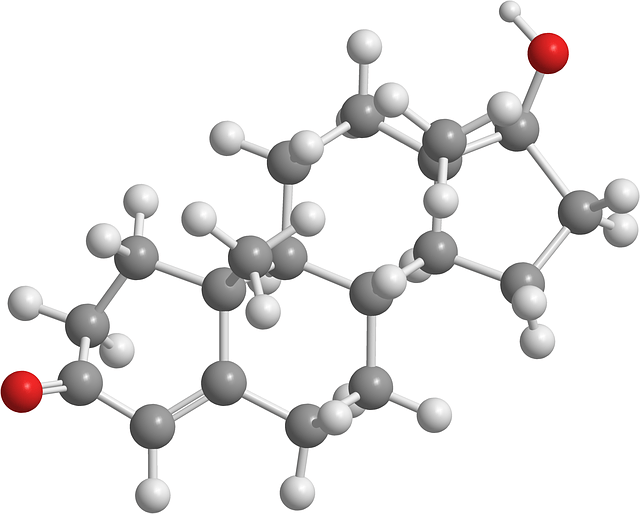If you’re struggling with dry skin, hypothyroidism or acne, functional medicine can help identify the source of your issue and provide lasting solutions.
Through genetic data, diagnostic testing, nutritional medicines and lifestyle interventions we can help to pinpoint the source of your symptoms while optimizing your health.
Dry Skin
Dry skin is a condition in which your body fails to produce enough oils for proper hydration. It may be due to living in a dry climate, aging, or medical issues.
Dry skin can often be treated at home with moisturizers and other hydrating products, but in some cases people may require prescription-strength solutions.
Functional medicine can assist with dry skin by treating the underlying cause, such as blood sugar issues that lead to insulin resistance or low oxygen saturation in the body. Treatments may include diet changes to increase essential nutrients like vitamin A, C and E, zinc and healthy fats for skin health.
Dry skin can also be caused by certain medical conditions, such as diabetes, thyroid disease or kidney disease. When these diseases exist, the kidneys are unable to filter out extra waste and fluid that leads to dryness of the skin.
Some medications, such as those for high blood pressure and cholesterol, and treatments for allergies or acne. Furthermore, retinol skincare products may dry out your skin further.
Chronic or severe conditions like psoriasis or eczema can also cause dry skin. It’s essential to consult a dermatologist about your dry skin symptoms so they can accurately diagnose the issue and provide treatments.
A doctor will inspect your skin and take a history to help diagnose the cause of dry skin. They may use tests to rule out other health issues that could be contributing factors.
Another cause of dry skin can be medical treatments like cancer treatment and dialysis. During these procedures, people often lose large amounts of water through their urine.
Dialysis patients may need to reduce the amount of fluid they drink, which can further dry out their skin. Furthermore, those with cancer or other forms of treatment should add more foods that provide essential nutrients and healthy fats into their diet.
A functional medicine doctor can evaluate the cause of your dry skin and collaborate with you on a holistic treatment plan that addresses its underlying issues, making symptoms disappear. This type of approach involves genetic data, advanced diagnostic testing, nutritional medicines and lifestyle modifications to get to the core problem so that optimal health can be achieved.
Hypothyroidism
Hypothyroidism occurs when your thyroid gland fails to produce enough hormones for all your bodily needs. Thyroid hormones affect nearly every organ and regulate many processes such as breathing, heart rate, weight, digestion and mood.
The thyroid is a small butterfly-shaped gland located at the front of your neck. It produces two major hormones: thyroxine (T4) and triiodothyronine (T3).
Hormones play a vital role in your body, controlling how fast cells use fats and carbohydrates as well as how much protein you produce. Without these hormones, your metabolism slows down significantly.
Hypothyroidism can manifest itself in various ways, including fatigue, sluggishness, dry skin, brittle hair, and constipation. Some individuals may experience more severe signs such as difficulty losing weight or muscle weakness.
Hypothyroidism is usually diagnosed through a blood test. Your doctor may also want to rule out other medical issues that could cause low thyroid levels.
Your doctor will likely begin treating you with thyroid hormone replacement therapy, which utilizes levothyroxine – the hormone your healthy thyroid gland makes – for treatment. This medicine comes in both brand-name and generic forms and should be taken once daily in pill or liquid form.
Other tests your doctor may order include a TSH (thyroid stimulating hormone) test and free T4 (thyroxine) test, which measures the amount of thyroid hormone present in your blood. The TSH test is frequently used to confirm the diagnosis of hypothyroidism.
The TSH test can also be useful in diagnosing whether or not you have an autoimmune disorder like Hashimoto’s disease, in which your immune system attacks and destroys the thyroid gland. Although rare, this condition can be difficult to treat if not caught early.
Thyroid hormone replacement therapy is the most effective treatment for hypothyroidism. To get the most benefit, take it regularly as prescribed by your doctor and adhere to their instructions closely.
Eczema
Eczema is typically caused by your immune system overreacting to irritants and allergens, leading to a compromised skin barrier and inflammation on its surface.
To effectively treat eczema, it’s best to limit exposure to irritating elements and allergens in your life while using topical creams, ointments and steroid medications when flare-ups occur. Additionally, applying moisturizers regularly between these episodes of eczema also plays a significant role.
Functional medicine practitioners can help reduce inflammation and heal your skin by pinpointing the underlying causes of your condition. By correcting these imbalances, eczema will not flare up again and you won’t have to deal with it in the future.
One of the first steps we take is to determine if you have any underlying food sensitivities or allergies to foods you may be eating. If so, we will need to avoid those items until your body has healed sufficiently for them to be tolerated without experiencing symptoms.
A healthy diet is an integral part of preventing eczema and optimizing overall wellbeing. At Coho Health, we take a holistic approach to nutrition – working together with you to guarantee that your meals contain all essential vitamins and minerals needed for optimal body function.
Another potential cause of your eczema could be an inflammatory viral infection in your body. Viral infections often lead to a build-up of waste products in the liver, which then enter the bloodstream and cause inflammation.
Acne
Acne is a skin condition in which pores become clogged with oil and dead cells, leading to whiteheads, blackheads and red, inflamed pimples (known as pustules). If left untreated, these pore can develop into painful cysts or nodules.
Skin cancer is an unfortunately common and often recurrent skin disorder that can have significant physical, emotional and social repercussions. It negatively impacts a person’s self-worth, confidence and quality of life; additionally it may lead to depression, anxiety, stress or other mental health issues.
There are various treatments available for acne. Most of them address the underlying causes of skin inflammation and infection that cause breakouts. Possible treatments may include topical and oral medications, diet/lifestyle changes, as well as skin care products with acne-fighting ingredients like salicylic acid or retinoids.
If your acne isn’t responding to over-the-counter and prescription medications, then you may need to see a dermatologist. They can suggest the most suitable medication for your condition.
Your doctor may suggest topical medications such as benzoyl peroxide, adapalene or salicylic acid to dry out excess oil and promote peeling. You may need to use the medication for some time before you notice results.
You could also try using a facial wash that contains salicylic acid or glycolic acid to gently exfoliate the skin and remove dead cells. This will improve your complexion, reduce blackheads and whiteheads, as well as soften any existing acne scars.
Essential oils can also be beneficial in treating acne. Plant-derived essential oils, such as tea tree, lavender and eucalyptus have been demonstrated to be successful at treating acne by decreasing pore size, healing inflammation caused by pimples and soothing irritation.
The functional medicine approach to acne involves getting at the source of the issue by addressing digestion, hormones, detoxification and immune function. By identifying and correcting these underlying problems you will experience long-lasting relief from acne.
A certified functional medicine physician will examine your history and test results to develop a holistic approach to treating acne. Our mission is to heal both body and mind through our comprehensive “Deeper Than Skin” program that addresses your acne from an integrative medicine perspective and guides you through the healing process both physically and emotionally.
For more information or if you would like to discuss treatment and management with Dr Stavy then please contact us via email:info@drstavy.com



